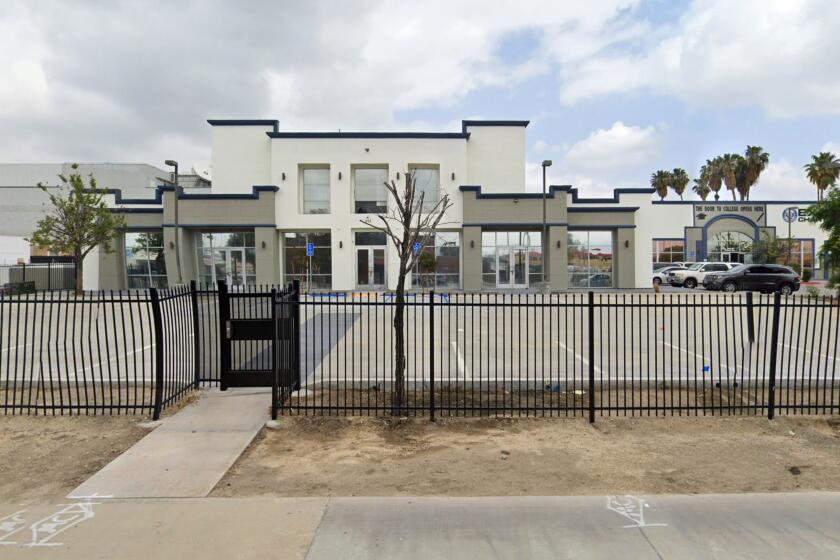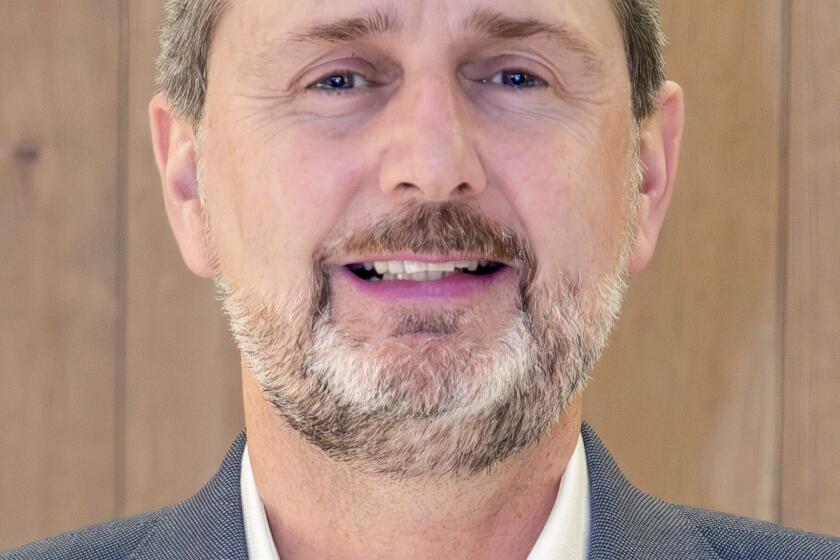Conspiracy Charges May Stalk Paparazzi
Alarmed by what they say is a new generation of paparazzi willing to take dangerous risks to get celebrity photos, Los Angeles law enforcement officials say they are considering a new tool: felony conspiracy charges.
Los Angeles County prosecutors have been exploring the possibility of bringing conspiracy cases against individuals or companies they believe may be orchestrating some of the riskiest photo ambushes.
“There is a very real concern that this type of behavior may constitute a danger to the victimized celebrity and others,” said William S. Hodgman, head of the Los Angeles County district attorney’s target crimes unit. “We are aware that vehicles are used quite often in efforts to stalk celebrities. We also are aware of numerous incidents where the celebrity and or others had children with them who were put in jeopardy.”
Police and prosecutors say that escalating aggressiveness over the last two years has prompted a new look at how existing laws are applied.
They cite two recent cases involving Lindsay Lohan, a much-photographed teen star, and Reese Witherspoon, 29, best known for her lead role in the “Legally Blonde” movies.
On April 16, Witherspoon told police she was confronted and later followed from her Westside gym by paparazzi. At one point, she said one or more of the photographers hemmed in her car outside a gated community off Sunset Boulevard, forcing her to seek help from a nearby security guard. No arrests or charges have been brought in the case, which police said was still under investigation.
On May 31, police arrested Galo Ramirez, 24, on suspicion of assault with a deadly weapon for using his minivan to ram Lohan’s Mercedes-Benz as she tried to make a U-turn near the Beverly Center shopping mall. Ramirez was an employee of Beverly Hills-based Fame Pictures. Several other paparazzi were on the scene almost immediately to take pictures and videotape of Lohan, 18, upset and still in the vehicle after the collision.
Among questions authorities are asking in the wake of these incidents: Is anyone instructing these photographers in how to obscure their identities, such as by blocking license plates? How do numerous photographers end up in the same place at the same time? Are they working together to force celebrities off the road? If so, might prosecutors be able to charge them with a felony?
“Part of the investigation is to see where the connections are, how closely they worked together, if at all,” said Lt. Paul Vernon, a spokesman for the Los Angeles Police Department.
Since taking over the target crimes unit about three months ago, Hodgman said his examination of paparazzi cases has led him to believe there may be criminal activity beyond obvious misdemeanors such as trespassing.
Cracking down on aggressive photographers, who can earn tens of thousands of dollars or more for a single shot, has long eluded authorities. First Amendment protections shield paparazzi, many of whom consider misdemeanor violations the cost of doing business. The most seasoned veterans know how to play just within the rules. And celebrities are often reluctant to press charges -- well aware of the symbiotic relationship they have with the celebrity press.
Law enforcement officials cited the tactics used in the Lohan and Witherspoon cases as part of a pattern that has piqued their interest. Other factors they said are being looked at include who employs the photographers and supplies their cellphones, rental cars and equipment. In cases in which paparazzi have been arrested, investigators said, they would look to see who pays the bail. Depending on evidence, said one district attorney official, it might be possible to make a felony case against not only the individual photographers, but also higher-ups on the celebrity media food chain.
The agency employing the photographer arrested for assault in the Lohan case, Fame Pictures, referred questions to attorney Alan Croll. Croll, who also is representing agency President Boris Nizon, said every effort had been made “to set and comply with standards for good conduct, although accidents can happen.”
In a statement, Croll went on to say, “That’s why they’re called accidents. Their photographers understand that they are reporters with a camera, but their job is not to create stories, provoke celebrities or initiate physical contact. They do a difficult job and bring pictures of celebrities to the public, which is clearly something the public wants.”
Vernon, the LAPD spokesman, conceded that the possible use of conspiracy charges was a “novel approach.”
But, he said, police investigators have begun to see evidence that such incidents are not random but orchestrated. Officials said photos or videotape taken at the conclusion of confrontations between paparazzi and stars usually capture celebrities in an emotional state, probably adding value to the image.
The idea of using felony conspiracy charges rankled some in the celebrity photography business. Frank Griffin, co-founder with Randy Bauer, of L.A.-based Bauer-Griffin, one of the leading American paparazzi agencies, said the possibility was outlandish.
“There has to be some criminal offense committed before you can be looked at for a charge of conspiracy,” Griffin said. “If we sit around in a circle and conspire to commit a road accident with a celebrity -- it just doesn’t happen.
“I’ve been doing this for more than half my life, and it saddens me to see this,” Griffin said.
His agency, he added, offers clear guidance to photographers on assignment. He said they are told that if they encounter law enforcement officials, they are to identify themselves, say who they work for and be polite. If mediation is required, he said, they are to call Griffin or Bauer.
Griffin said he also gives “strict instructions” to his photographers that if they become “part of the story, then it is no longer a story.”
The new effort to crack down, however, has won support from others who believe the photographers hound celebrities.
Lohan’s attorney, Jay Lavely, said he believed everyone should be entitled to “a minimal zone of privacy.”
He said incidents he had been told about included breaking and entering, trespassing, gaining entry under false pretenses and impersonation. But Lavely declined to discuss specific incidents involving his clients, who include noted singers and actors.
Stanley Goldman, a professor at Loyola Law School, said the potential use of felony conspiracy charges against paparazzi would be unusual. Conspiracy charges have been used recently in cases against alleged terrorists. The charge gained notoriety previously as a tool against mobsters and street gangs.
Goldman said there were obvious prosecutorial advantages if conspiracy charges could be used successfully.
“You can use hearsay. You can use the statements of alleged co-conspirators,” said Goldman, a former L.A. County public defender who teaches criminal procedure. “It also allows lots of theories to be admitted. And then, of course, if convicted, you end up with vastly more potential charges to be guilty of.”
But Goldman and others in the legal community said they were concerned about the implications.
“The problem with it is, in theory, if two people are crossing the street and the light is red, you could file a felony case against them,” said Harland Braun, a well-known defense attorney who has represented such celebrities as Steven Seagal, Roseanne Barr and Dennis Rodman. “Are you seriously going to send the paparazzi to state prison over chasing someone down the street?”
Over the years there have been flashpoints in tension between paparazzi and their targets, most notably after England’s Princess Diana was killed in a crash in a Paris tunnel in 1997 when her car was being chased at high speed by photographers. That accident led to an outcry against paparazzi, later tempered somewhat by the revelation that the driver of her car was legally drunk at the time of the chase.
Griffin, who has 35 years of experience in the high-pressure paparazzi business, acknowledged: “Celebrity photographers are probably not the nicest people in the world. A lot of [paparazzi photographers] are just so-called guns for hire. They’re attracted to the job because they think they can make an easy buck.... There is a cowboy element, there is a renegade element, attracted by the reward of the prices that can be paid for some of these photographs.”
In any case, he said, he believed there already “are laws in place that will take care of these renegades; they just have to be more strictly enforced.”
*
Times staff writer Andrew Blankstein contributed to this report.
More to Read
Start your day right
Sign up for Essential California for news, features and recommendations from the L.A. Times and beyond in your inbox six days a week.
You may occasionally receive promotional content from the Los Angeles Times.







